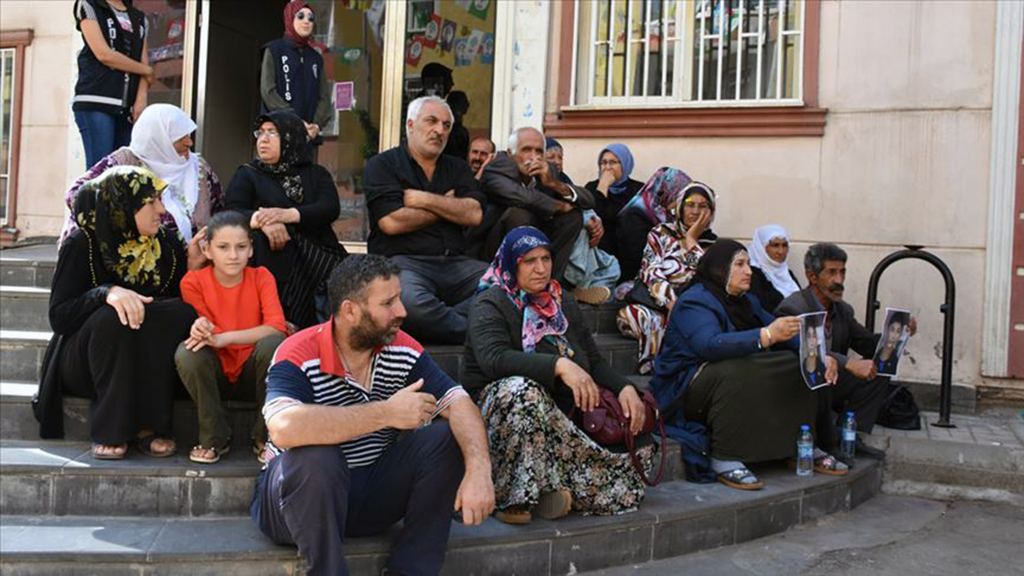
US must cut YPG ties over abduction of Kurdish youth
For the last two weeks, the news of a group of Kurdish mothers protesting the abduction of their children by the PKK has dominated the headlines in Turkey. It all started a few weeks ago when Hacire Akar launched a sit-in protest in front of the pro-PKK Peoples' Democratic Party (HDP) headquarters in Diyarbakır, over the abduction of her youngest son.
Share
For the last two weeks, the news of a group of Kurdish mothers protesting the abduction of their children by the PKK has dominated the headlines in Turkey. It all started a few weeks ago when Hacire Akar launched a sit-in protest in front of the pro-PKK Peoples’ Democratic Party (HDP) headquarters in Diyarbakır, over the abduction of her youngest son.
Soon after her news broke in Turkish mainstream media, different civil society organizations and average people from all across the country voiced their overwhelming support. Eventually, several other families joined the wave of protest making similar demands. They all said their sons also disappeared a while ago and blamed the PKK for brainwashing them. They also added that the HDP has something to do it.
They have continued to protest in front of the HDP headquarters in Diyarbakır. But, this is not the first time such protests have been staged in the region. Many families there had previously raised their voices in protest.
However, they were often intimidated by the terrorist group and this has been a recurring problem since the group’s emergence. Abduction of the youth in the region is a priority for the PKK and when it fails to do so it resorts to kidnapping children from the most impoverished families. The demonstrating families had to muster a lot of courage to come forward and stand up against the PKK’s terrorizing tactics.
One family’s testimony was particularly interesting. Ayeşegül Biçer, who joined the sit-in protest soon after Akar, told journalists that she believes his son was kidnapped to fight in northern Syria.
“He left the house on Saturday morning on Nov. 17, 2018. Two days later, he called us. When he called us, we were informed that he is with the [People’s Protection Units] YPG. Some YPG figures spoke with us… It’s been 10 months and there has been no news from him since. We are mourning… I’m calling on the HDP. How does this matter regard the Kurds?”
Two issues stand out in this statement. First of all, just like Akar’s case, this family also believes that the HDP has something to do with the disappearance of their child. The claims of the family members are serious and the HDP leadership needs to respond to their questions.
Secondly, the fact that the family believes that the YPG and the mobilization of the PKK to recruit fighters for the YPG following the Kobane campaigns brought questions to the composition and the nature of the group. In fact the Biçer family even claimed that they know where their son is being kept, at a camp in Tel Abyad.
Since the beginning of the U.S.-YPG cooperation in northern Syria, some in Washington have tried to legitimize this cooperation by portraying the “secularism” and “civility” of the group. Although Turkish officials reminded the U.S. again and again that what the group is an offshoot of a terrorist organization and follows in the same footsteps of its main branch, the glorification of the organization has never ended.
The threat that the organization poses for a NATO ally, war crimes that were reported by the main human rights organizations and the recruitment of child soldiers by the organization were not taken into account since the organization served for the short-term interests of the U.S.
Now the reality that some U.S. officials did not want to admit is being shouted at them by the mothers in the region. The protests and words of these mothers will show what kind of organization the U.S. has been cooperating with for the last few years.
[Daily Sabah, 9 September 2019]
Tags »
Related Articles






